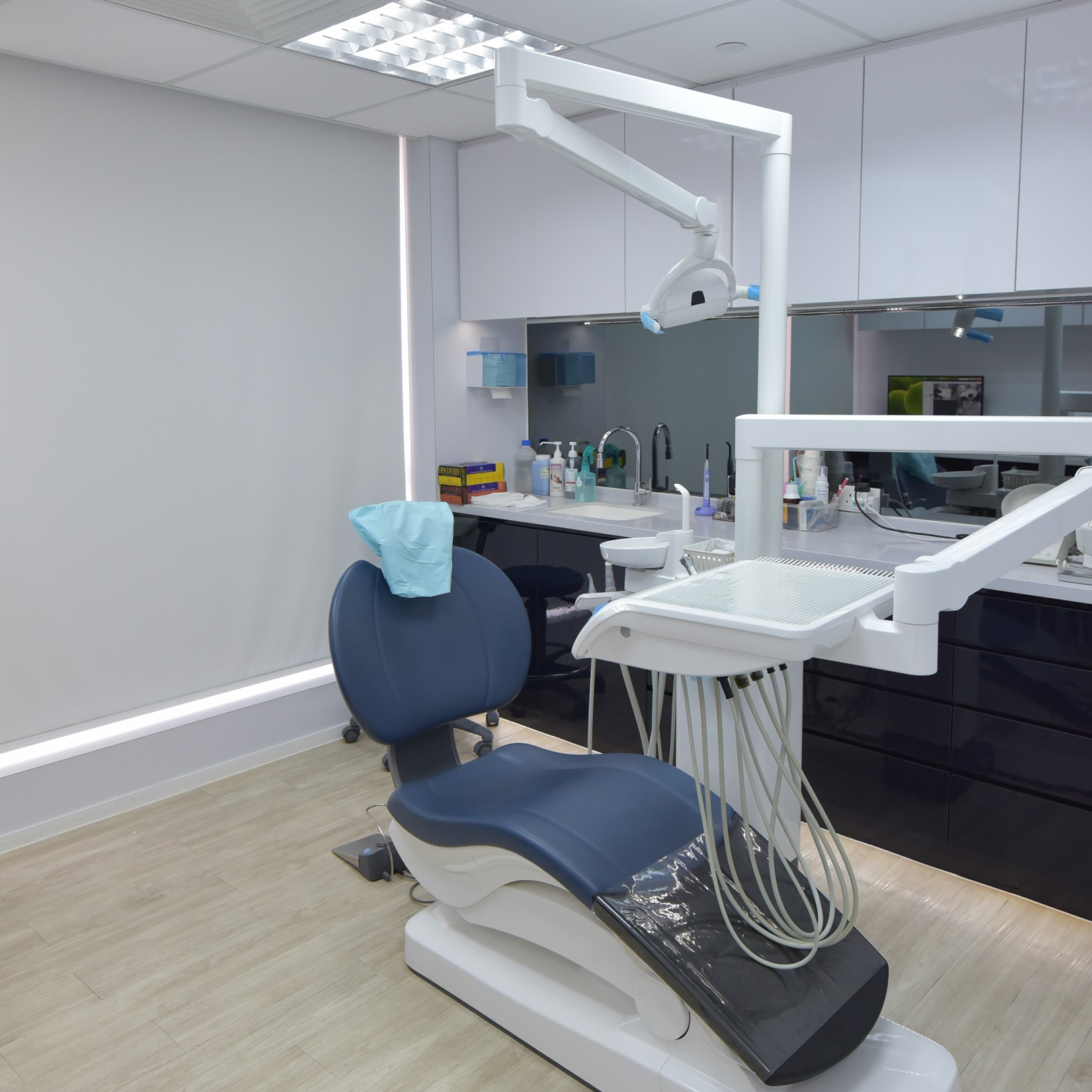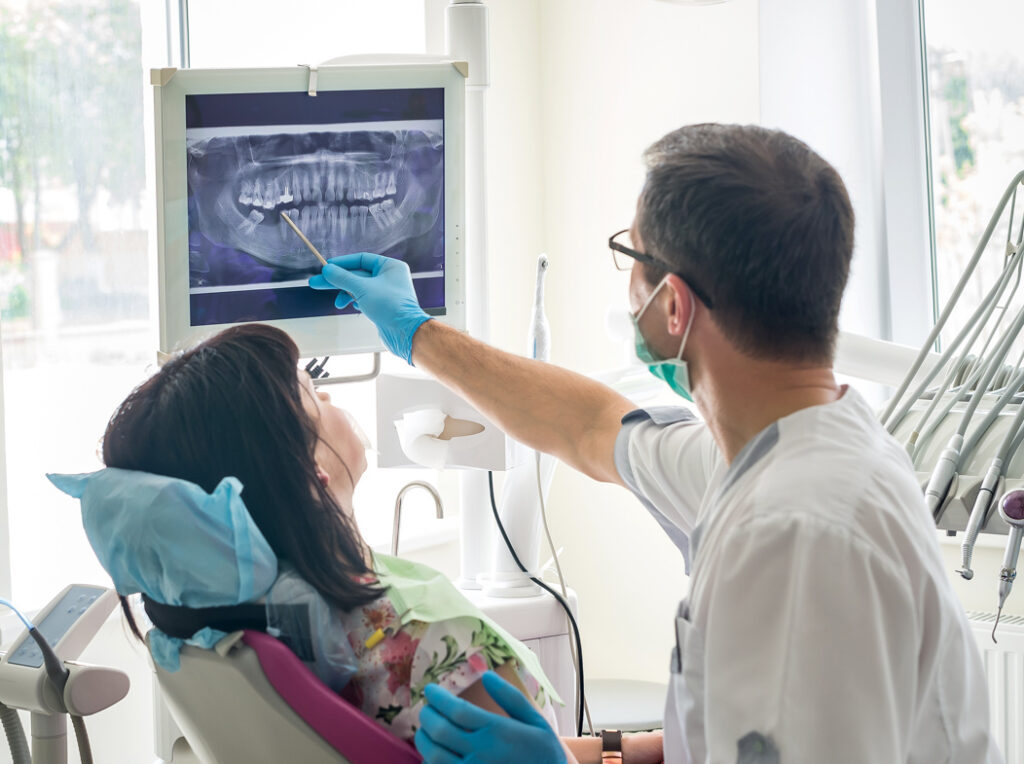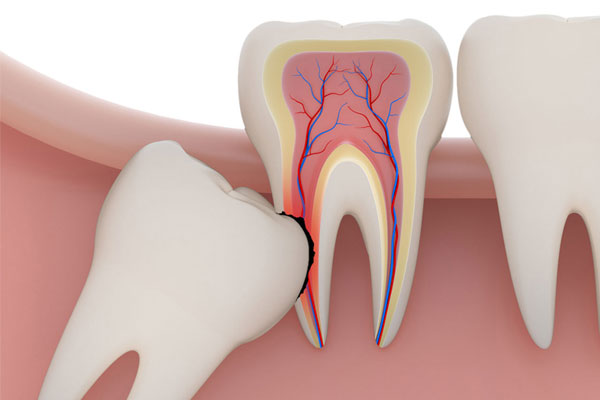
Extraction
When a tooth cannot be preserved due to severe decay, periodontal disease, overcrowding, or other reasons, tooth extraction may be a necessary option. Tooth extraction is a common dental procedure, usually performed under local anesthesia to ensure patient comfort during the process. After extraction, following the dentist’s instructions for proper care can help speed up healing and reduce the risk of complications. To prevent adjacent teeth from shifting or bone resorption in the jaw, it is recommended to consider appropriate restorative options, such as dental implants or bridges, after the extraction to restore the integrity and function of the mouth.


Wisdom teeth, also known as the third molars, typically emerge between the ages of 17 and 25. Due to limited space in modern human jaws, wisdom teeth may not grow properly, leading to impaction and various oral health issues.
Problems Caused by Impacted Wisdom Teeth
Tooth Decay and Gum Disease
Impacted wisdom teeth are located far back in the mouth, making them difficult to clean. This can result in the accumulation of food debris and bacteria, increasing the risk of cavities and gum disease.
Pericoronitis
When a wisdom tooth partially erupts, the gum tissue around the crown may become inflamed, causing pain, swelling, and even difficulty opening the mouth.
Damage to Adjacent Teeth
If the wisdom tooth grows in the wrong direction, it may press against neighboring teeth, causing them to shift out of alignment or become damaged.
Do Wisdom Teeth Need to Be Removed?
Not all wisdom teeth require removal. If wisdom teeth grow normally and cause no discomfort, regular monitoring may suffice. However, removal is recommended in the following cases:
Recurring Inflammation or Infection: Gum swelling, periodontal inflammation, or persistent pain that disrupts daily life.
Tooth Decay or Gum Disease: Cavities or gum issues affecting the wisdom tooth or neighboring teeth.
Crowding: Misalignment of teeth caused by wisdom teeth, impacting aesthetics and functionality.
Schedule a Dental Examination
If you’re experiencing any of the above issues, or if you’re unsure about the condition of your wisdom teeth, consider booking a dental check-up to evaluate your oral health and discuss treatment options.
